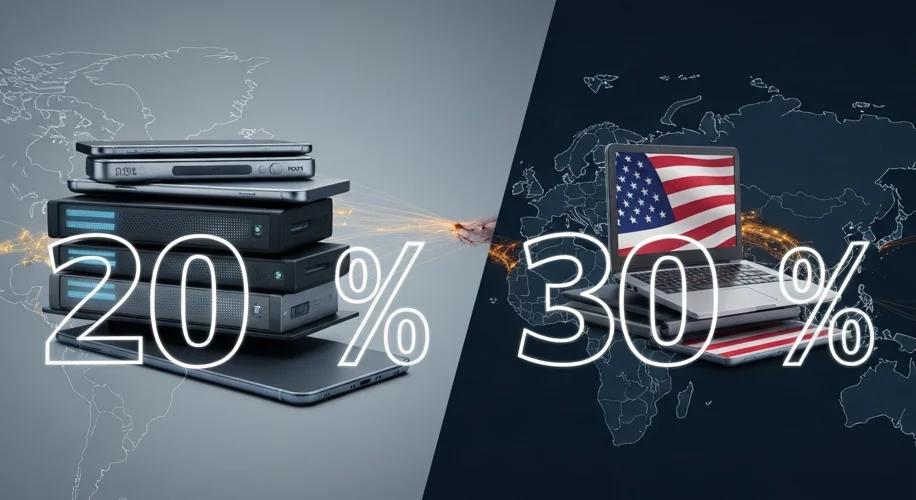As of September 2, 2025, we’re seeing a significant escalation in trade policy discussions, with reports suggesting proposals for substantial tariffs on imports from China. While specific figures are still being debated, the idea of tariffs as high as 200% or even 300% signals a major shift in global trade dynamics.
For those of us in the tech world, this isn’t just an economic headline; it’s a potential disruptor for the very foundation of how we innovate and operate. Many of the components essential for our devices, from smartphones to advanced computing hardware, are sourced globally, with significant contributions from China.
If these proposed tariffs were to be enacted, it would almost certainly lead to higher costs for businesses. This increase in operational expenses could then be passed on to consumers in the form of more expensive gadgets and technology. For tech enthusiasts, this might mean rethinking upgrade cycles or budgeting more for new purchases.
Beyond direct consumer costs, these measures could also impact the intricate global supply chains that the tech industry relies upon. Companies might scramble to find alternative suppliers, which isn’t always a straightforward or cost-effective process. This could lead to delays in product launches or even shortages of certain goods.
Another critical area to consider is the effect on technological development and adoption. High tariffs can stifle the flow of innovation. If the cost of accessing components or finished products becomes prohibitively expensive, it could slow down research and development. It might also make it harder for new, emerging technologies to gain traction and widespread adoption if their price points become too high for the average user.
Furthermore, such protectionist measures often invite retaliation. If one country imposes high tariffs, other countries may respond in kind. This tit-for-tat escalation can create a cycle of trade disputes that disrupts not only specific industries but the broader global economic landscape. The potential for this kind of disruption is a serious concern for anyone invested in steady economic growth and a predictable environment for innovation.
From my perspective, as someone who spent decades in the tech industry, I’ve seen firsthand how interconnected our world has become. Global collaboration and the free flow of goods and ideas have been powerful drivers of progress. While it’s important for nations to address trade imbalances, the scale of tariffs being discussed raises serious questions about the unintended consequences for innovation, economic stability, and the consumer.
It’s crucial to consider the broader ramifications. We need to ask ourselves: what kind of global economic environment do we want to foster? One that encourages collaboration and the shared advancement of technology, or one that erects barriers? The key question is how we can navigate these complex economic waters while still promoting the ethical and responsible development of technology that benefits all of us. This is a conversation that requires careful thought and a nuanced approach.

